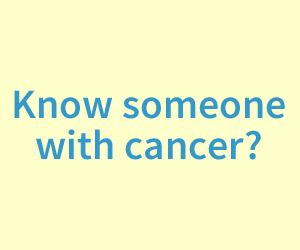Checkpoint blockade - the hottest thing in conventional cancer immunotherapy
Back in 2009, when I began my quest to understand Coley's Toxins, my wife's boss at the university connected us with a very special human being. His name was Dr. Lloyd Old, once former Vice President at Memorial Sloan Kettering Cancer Center, but in recent years before his passing away, fully dedicated chief of the Ludwig institute for Cancer Research (or LICR). LICR is a well funded non-profit research organization that sponsors and nurtures a large worldwide collaborative of leading researchers in the field of cancer immunotherapy.
My wife's boss was a personal friend of the late Dr. Old. She took the liberty to let Dr. Old know of our quest to research Coley's Toxins. The very next morning, we received a call from Dr. Old himself and boy, was that one of the brightest days of our cancer journey ever. Thereafter, we had the privilege of ongoing conversation with one of the most brilliant minds in cancer immunology. Initially, Dr. Old guided us in obtaining an NY-ESO-1 vaccine after my wife had completed first-line conventional therapy (surgery, radiation, chemo). The idea was to try to vaccinate the body against any remnant microscopic cancer cells.
Later, Dr. Old also guided our thoughts regarding Coley's Toxins—the only known modality to achieve decades-long cures of sarcoma and some carcinomas (even metastatic disease). CancerWife has been on Coley's on and off for almost 2 years. We truly believe it has made a difference.
The layman's idea of how checkpoint blockade works is it takes the brakes off specific immune system's checkpoints, leading to regression of cancer. The multitude of cancer vaccines in past decades have generally failed to regress disease (see this Nature journal paper that talks about it).
The prevailing thought is that it is insufficient to simply generate a recognition of cancer antigens by the immune system. There are regulatory T-cells that tumors use as defence shield to neutralize invading cytotoxic T-cells. Researchers have tried various strategies to surmount this problem. However, none have really yielded significant clinical response until the recent advances in checkpoint blockade.
Here are a couple of web pages that describe the promise of checkpoint blockade:
- http://www.mskcc.org/blog/i-new-yorker-features-immune-therapy-work-msk-researchers
- http://www.ascopost.com/issues/july-1-2012/expert-point-of-view-pd-1-immune-checkpoint-inhibitors-look-promising-in-multiple-solid-tumors.aspx
The key point is this: Last year, Yervoy (Ipilimumab) was approved for melanoma. Approximately 30% patients previously with absolutely no hope were able to obtain benefit in the form of significantly prolonged survival, or in some cases, shrinkage of their disease (some complete responses). Many of these patients experienced durable benefit. Sometimes, a patient's tumors will not shrink. However, they stop growing and the patient is able to live for a significantly long time thereafter. A durable immune response is in effect the next best thing to a cure.
Unlike chemo, once the immune system is able to regress tumor and keep it in check, there may not be dependence on recurring infusions of Yervoy, in contrast to chemo. Again, it bears repeating that these melanoma patients had no hope. With Yervoy, almost one third of them are able to reap long term benefit.
Anti-PD1 results imply checkpoint blockade may work for multiple cancers (dare I hope for any cancer?)
The modern approach to cancer has attempted to classify & subclassify cancer types. The thought is to try to find a specific weak point for that specific cancer. However, as WIlliam Coley and other surgeons already noted over 100 yrs ago, sarcomas and carcinomas of all types responded to Coley's Toxins. This strongly implies that there is indeed a general immunotherapy approach that may have benefit in multiple cancers. This past June, an anti PD-1 drug (another checkpoint blockade similar to Yervoy, but which acts on a different checkpoint) made big news.
Approximately 20% responses in each of melanoma, kidney and NSCLC (lung carcinoma). The key takeaway is anti PD-1 showed responses across multiple cancers, perhaps corroborating the idea that the more general immunotherapy approach may be the way forwards.
Rumblings of change at MD Anderson, the #1 usnews-ranked cancer center in the USA
Our experienced sarcoma oncologist at MDA, was chairman of the sarcoma division for a long time. That position has now been assumed by Patrick Hwu, formerly head of melanoma, now head of both sarcoma and melanoma. We theorize that this may be due to Dr. Hwu's experience with checkpoint blockade (Yervoy) along with his rich research history in adoptive T-cell procedures where he takes a patient's tumor sample, extracts lymphocytes that have inflitrated it, and makes a large number of these and later reinfuses them into the patient to go after remaining tumor. Our sarcoma oncologist at MDA tells us that they are in the process of setting up an immunotherapy program for sarcoma. We believe this program will most likely be built around checkpoint blockade. We hope it will be out by the end of this 2012.
Secondly, our friends at LICR have told us that Dr. James Allison, the pioneering researcher in the field of checkpoint blockade, is in the process of being recruited to MDA. We heard that if this move comes through, Dr. Allison will probably relocate his research lab to Houston around the end of 2012.
Trying to put two and two together, we theorize that the organizational changes within MDA's sarcoma division, along with Dr. Allison's move to MDA, may imply that at long last, a leading cancer center in the USA will now have a serious immunotherapy program. No more dabbling around by independent researchers. No more opposing views within any cancer center where some physicians may think it works, while most others dismiss it as useless. Finally, could it really be that a leading cancer center is actually getting serious about empowering cancer patients to receive immunotherapy on a large scale? If so, this would be a dream come true for my wife and I. For the past 3 1/2 years, we've had to wing it by ourselves, living for months in Mexico and Germany in order to get immunotherapy. It's almost too good to be true to believe that we may be able to receive immunotherapy at our very own US cancer center!
Off-label use of Yervoy is possible for patients with no other hope (but expensive)
Now, another key point for dying cancer patients who need something right now. In the USA, Yervoy (anti-CTLA4) is already approved for melanoma. As a result, it can be administered off-label for other cancers. Off-label use means that your physician can legally give you a drug even though it has not yet been approved for your specific cancer. However, since it has not been approved for your specific cancer, your insurance will most likely deny coverage. It costs >$100,000 for 4 infusions of Yervoy. However, if you do get a response, there is a realistic chance the response will persist long after the 4 infusions. This is in contrast to the way chemo works where the minute you stop the infusions, the cancer typically comes roaring back. Again, the main reason for this difference is that checkpoint blockade drugs tilt the immune system towards being able to recognize what the bad cells are, and subsequently keep them in check.
Honestly, for a 10-30% chance of initial shrinkage, including possiblity of complete regression, and then after that, the possibly of a long, durable response that is in effect a cure, it may be worth selling the house for.
If you have questions about cancer immunotherapy or checkpoint blockade, write us below in the comment box, and we'll get back to you.



